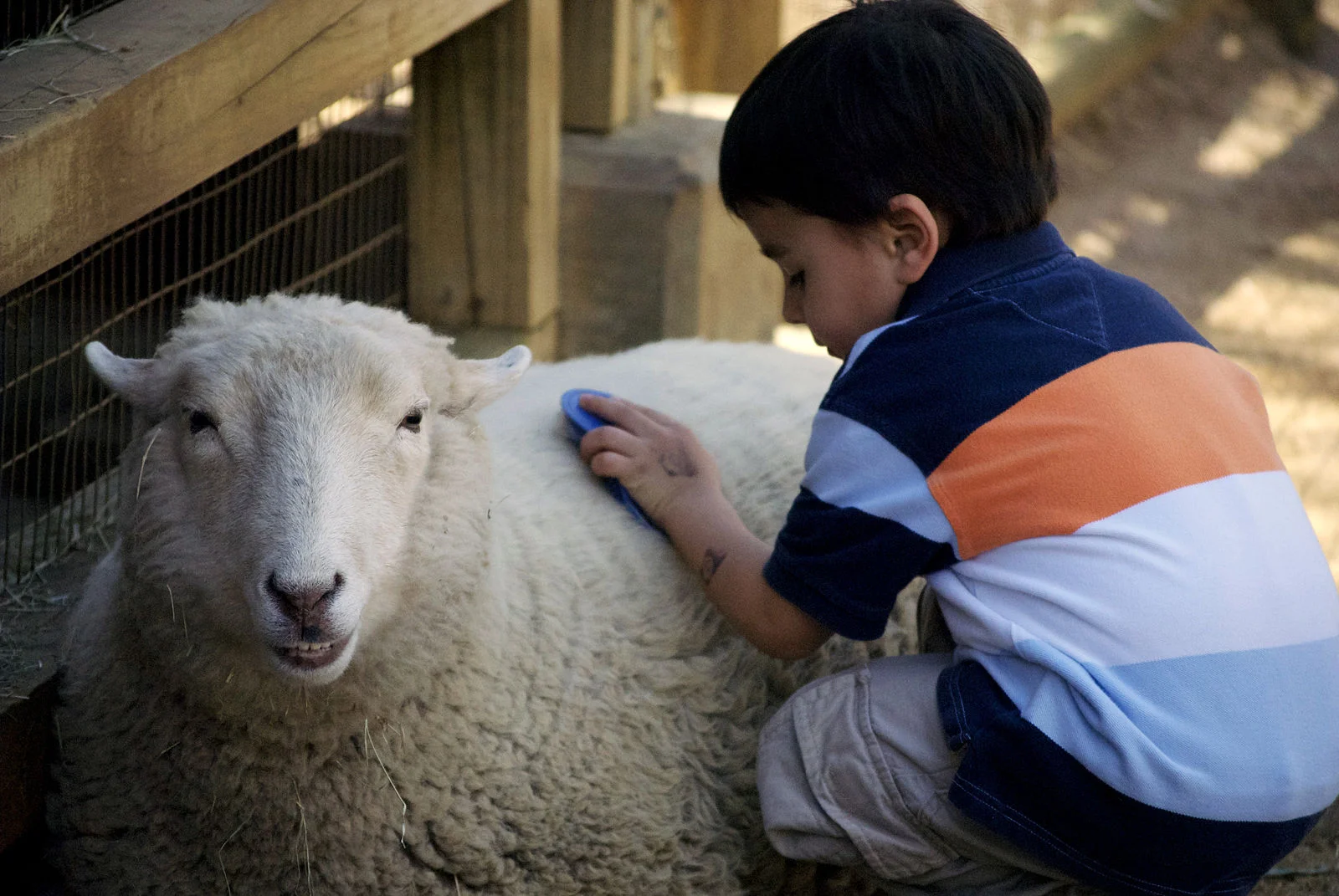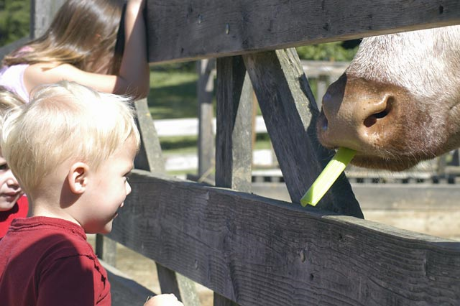The Difference in Our Relationship with Animals as Kids Versus Adults
A few nights ago, I was watching HGTV's Living Big Sky, episode 1 of season 1 ("Living Big Sky with the Gentry Family"). In it, the parents take their three young sons to a cattle ranch to get a taste of what life is like in Montana (they moved from Virginia). While their sons are feeding the steers, the cattle rancher/real estate agent tells the boys that the steers "get fed 'til they get old enough and big enough..."
Of course, he lets his sentence trail off--maybe to spare them the ugly truth. However, viewers can assume the grim fate of the steers.
One of the boys asked a question that struck me, "And then do you let them go?" The boy was too young and innocent to know. In his mind, he saw those sweet animals being brushed, fed and cared for. Why would he think anything bad would happen to them? It makes no sense, right? Why would someone take care of an animal, and then send the innocent animal off to be slaughtered and eaten?
Our Relationship with Animals as Kids
That boy's question was a reflection of innocence and untainted views. It basically affirmed what vegans and animal activists like Gary Yourofsky and Colleen Patrick-Goudreau have been saying: we're born vegan, and as children, we would never think to harm or kill an innocent animal. We see them as friends.
As Colleen Patrick-Goudreau talked about in one of her Food for Thought podcasts, as kids, we're taught our ABCs from animals (e.g., Sesame Street), our pajamas are filled with animal prints, children's books feature animal characters, and we're given cute stuffed animals to hug or play with. Heck, we even sing songs about farm animals: Old MacDonald Had a Farm.
As children, we don't have an inherent craving for meat--or a natural instinct to tear apart an animal with our teeth. We're not born carnivores or omnivores. We're only taught to crave and eat meat.
How we see animals as kids is simple: we would rather play with them than eat them. When it comes to the treatment of animals, as kids, we generally know right from wrong. We may sometimes be rough when playing with them, but if we saw a pig or a cow, we wouldn't think to kill and eat them. (And if a child abuses, tortures or kills animals, as adults we're horrified because that sends up a red flag that the child may have serious issues--maybe even grow up to be a psychopath).
Image by Dennis Mojado
How We See Animals as Adults
As we get older, however, we're brainwashed and told to believe that certain animals exist merely for our consumption, convenience, entertainment, fashion, personal collection and other forms of exploitation.
We buy into the myths put out by marketing masterminds whom the meat, dairy and egg industries invest in to dupe the masses. It's because of them that we think we need meat and eggs for protein, and milk for calcium. (Read more about the milk myth here and here, and how it actually depletes bones of calcium.)
I don't know about you, but I hate being duped. It infuriates me to know that we've been duped all our lives.
Even though I was pescetarian for three years, vegetarian for about six months and now vegan for two months, I only recently found out why we think certain animals are good sources of certain nutrients. That's how good the meat, dairy and egg industries are at promoting and perpetuating myths. We're taught that milk is a good source of calcium for strong bones. Calcium is a mineral found in the soil of the earth. The only reason we get calcium from cow's milk is because they eat the grass that comes from the nutrient-rich soil.
As for fish, we're constantly told that we need them for healthy omegas. In reality, fish are rich in essential fatty acids because they feed on algae and phytoplankton. Again, plants.
Animals and their secretions are middlemen. We don't need to consume them for nutrients or for sustenance--we're only taught to believe we do. As Gary Yourofsky says, we eat meat, cheese, milk and eggs due to habit, tradition, convenience and taste. That's it.
A Truth Too Ugly to Tell?
When I think about the conversation between the cattle rancher and the boys, I wonder why the only response to the youngest boy's question was a mix of "No's" and laughter.
If the truth behind the real fate of the steers isn't right for a little boy to know, and we feel uncomfortable telling a kid about the violence and death involved, then why do we go on perpetuating this ugly truth by consuming meat? That means deep down we know it's wrong--we just disregard it. We ignore the truth out of convenience, taste, habit and tradition.
Let's remember the affinity we had for animals as kids, and undo the years of brainwashing that shrouded our conscience. Let's make compassionate dietary choices so there won't be an ugly truth to hide.

